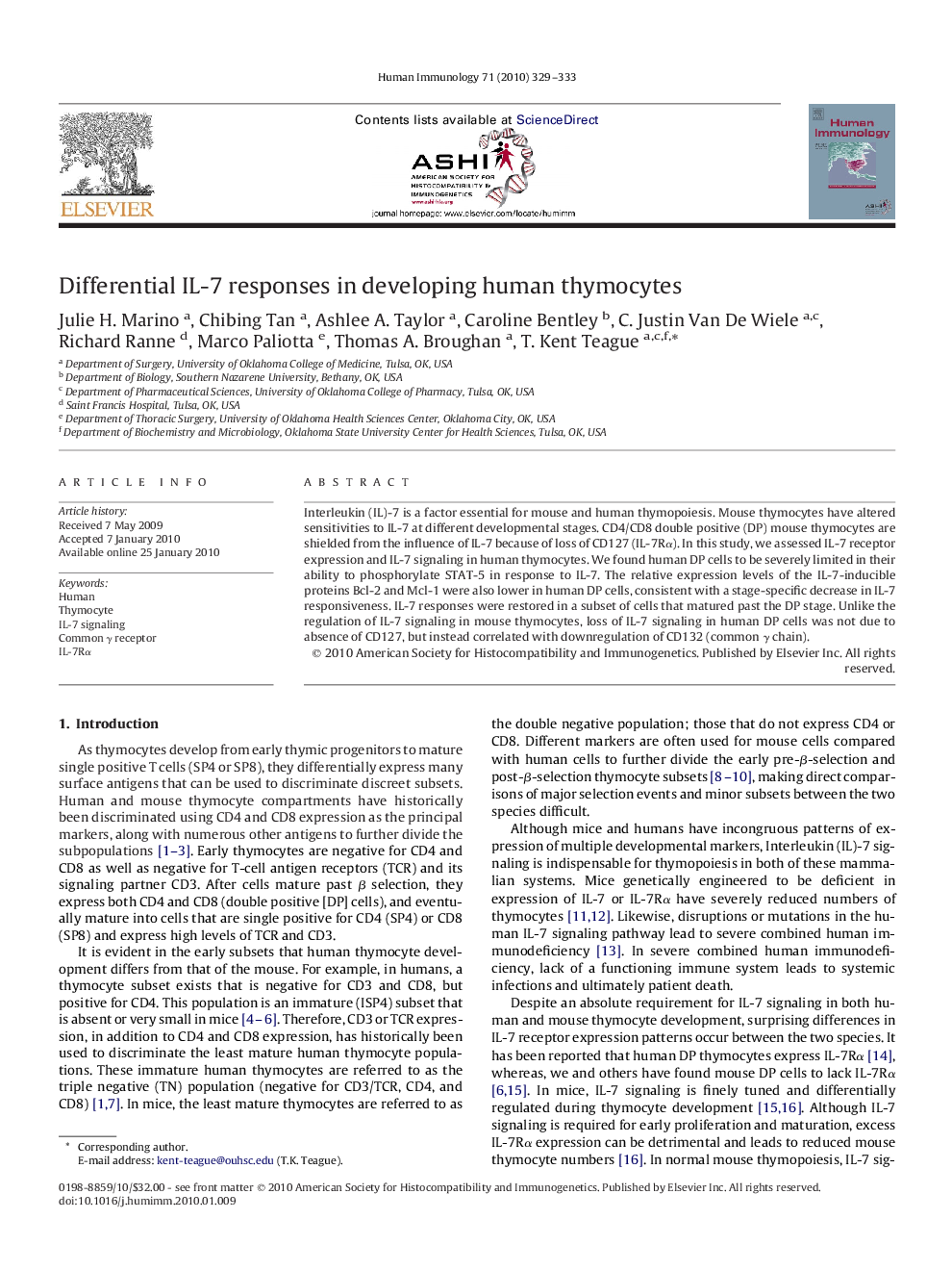| Article ID | Journal | Published Year | Pages | File Type |
|---|---|---|---|---|
| 3351162 | Human Immunology | 2010 | 5 Pages |
Abstract
Interleukin (IL)-7 is a factor essential for mouse and human thymopoiesis. Mouse thymocytes have altered sensitivities to IL-7 at different developmental stages. CD4/CD8 double positive (DP) mouse thymocytes are shielded from the influence of IL-7 because of loss of CD127 (IL-7Rα). In this study, we assessed IL-7 receptor expression and IL-7 signaling in human thymocytes. We found human DP cells to be severely limited in their ability to phosphorylate STAT-5 in response to IL-7. The relative expression levels of the IL-7-inducible proteins Bcl-2 and Mcl-1 were also lower in human DP cells, consistent with a stage-specific decrease in IL-7 responsiveness. IL-7 responses were restored in a subset of cells that matured past the DP stage. Unlike the regulation of IL-7 signaling in mouse thymocytes, loss of IL-7 signaling in human DP cells was not due to absence of CD127, but instead correlated with downregulation of CD132 (common γ chain).
Related Topics
Life Sciences
Immunology and Microbiology
Immunology
Authors
Julie H. Marino, Chibing Tan, Ashlee A. Taylor, Caroline Bentley, C. Justin Van De Wiele, Richard Ranne, Marco Paliotta, Thomas A. Broughan, T. Kent Teague,
